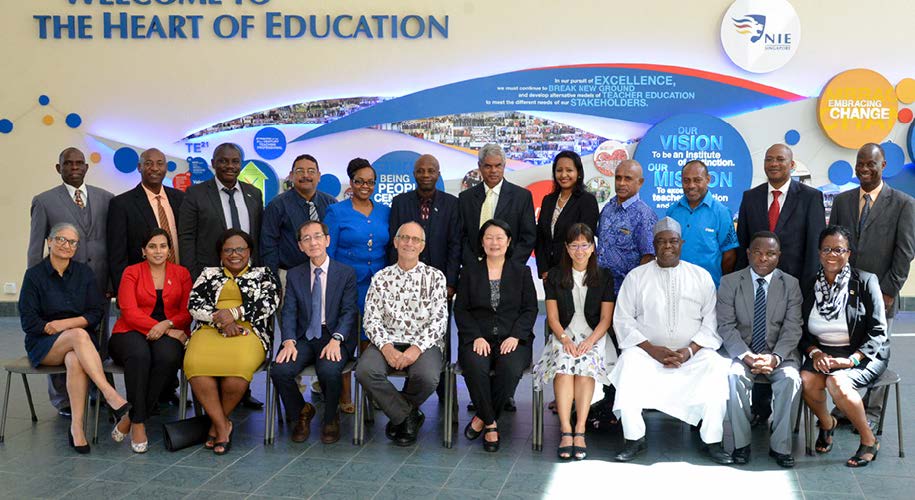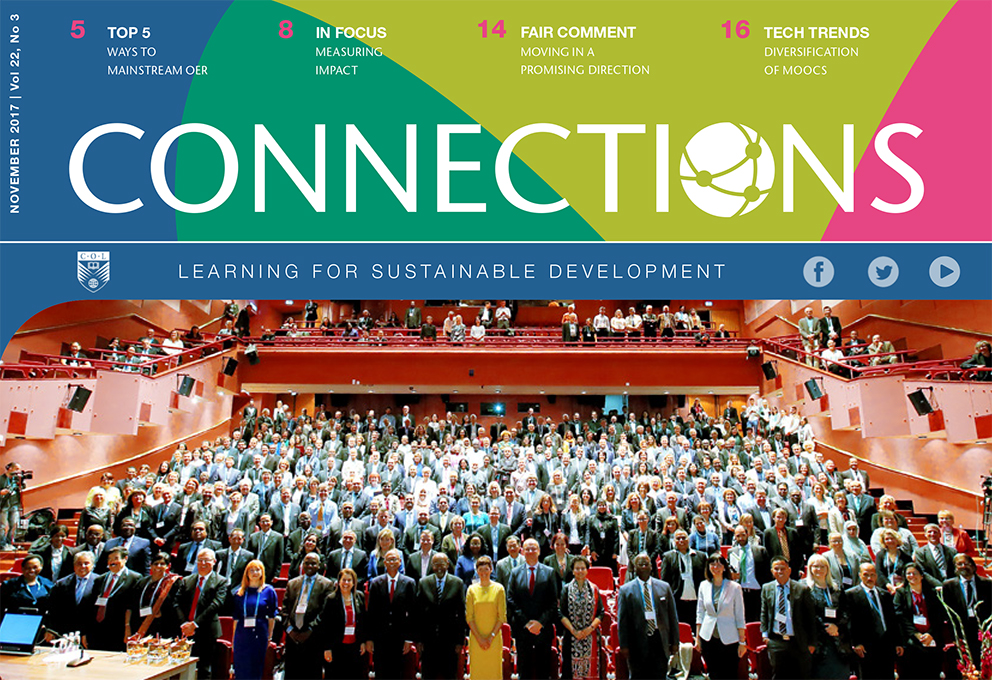
Participants at the 2nd World Open Educational Resources Congress. (Credit: Slovenian Press Agency)
Download the digital version (PDF and ePub format) from OAsis
Sign up to receive email updates from COL.
COVER STORY
2nd World OER Congress
Sharing and collaboration at the root of our OER future
The 2nd World Open Educational Resources (OER) Congress drew over 400 delegates from 96 countries to Ljubljana, Slovenia, from 18 to 20 September 2017. The event provided the opportunity for a full cross-section of the OER community to come together and reflect on the current state of OER and plan for its future.
The Commonwealth of Learning’s President and CEO, Professor Asha Kanwar, joined H.E. Dr Milan Brglez, President of the National Assembly of the Republic of Slovenia, Mr Getachew Engida, Deputy Director-General, UNESCO, Mr Tibor Navracsics, European Commissioner for Education, Culture, Youth and Sport, and Ms Irina Bokova (via video), Director-General, UNESCO, for the opening ceremony. She also presented the findings from the Regional Consultations on OER and two surveys, which COL organised in the lead-up to the Congress – all of which are captured in two publications now available online.
The Congress attracted 20 government ministers, or their representatives, and resulted in a Ministerial Statement in support of OER. In the statement, the ministers called “on all educational stakeholders to implement the recommendations of the Ljubljana OER Action Plan 2017 to increased international collaboration in the area of OER through a dynamic coalition to expand and consolidate commitments to actions, strategies and legislation in this area.”
Reflecting on the changes to the OER movement since the 1st World OER Congress, Professor Kanwar said: “In 2012, our main objective was to foster governmental support for OER internationally. Today, we want to involve many more stakeholders so that OER can be mainstreamed and implemented at all levels.”
The President pointed out: “There is a huge opportunity for both COL and UNESCO to help Member States to take full advantage of the OER movement to effect the paradigm shift required to achieve the targets of SDG 4.”
REGIONAL NEWS
PAN-COMMONWEALTH
COL invites Expressions of Interest for PCF9
The Commonwealth of Learning (COL) invites Expressions of Interest to co-host the Ninth Pan-Commonwealth Forum on Open Learning (PCF9). COL is seeking a partner institution that is a leader in open, disÂtance and flexible learning and has experience in hosting international conferences. The Forum, which is planned for the latter half of 2019, will be a three-day event designed to address online, flexible, open and distance learning through widening educational access and by advancÂing the social and economic development of communities and nations.
Five Commonwealth countries adopt COL’s Open/Innovative Schooling model
Ministries of Education in Belize, Mozambique, Trinidad and Tobago, Vanuatu and Zambia have signed agreements with the Commonwealth of Learning (COL) to work together to improve the quality of teaching and learning in mainstream and open schools through eLearning and to broaden access to schooling for out-of-school youth.
COL recently brought representatives from these five countries together in Singapore to share experiences in the implementation of COL’s Open/InnovaÂtive Schooling (OIS) model in mainstream and open schools and to provide an opportunity for these participants to align country implementation strategies, find common solutions to challenges and identify innovative ways to increase the momentum of open/innovative schooling.
“This was a unique opportunity to have all five countries where the OIS model is being implemented, in one room at the same time,” said Dr Johan Hendrikz, COL Senior Adviser: Open Schooling. “While each country has its own unique context, the workshop allowed us all to see that we have much in common and, with careful planning and implementation, systemic impact is possible.”
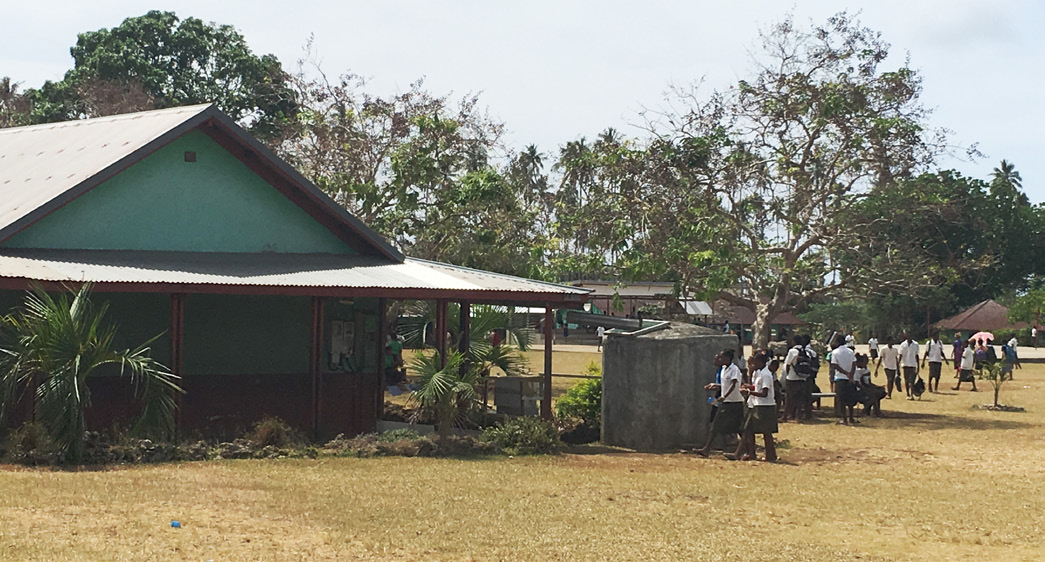
Vanuatu embraces the OIS model
Time to rethink teaching and learning so no one is left behind
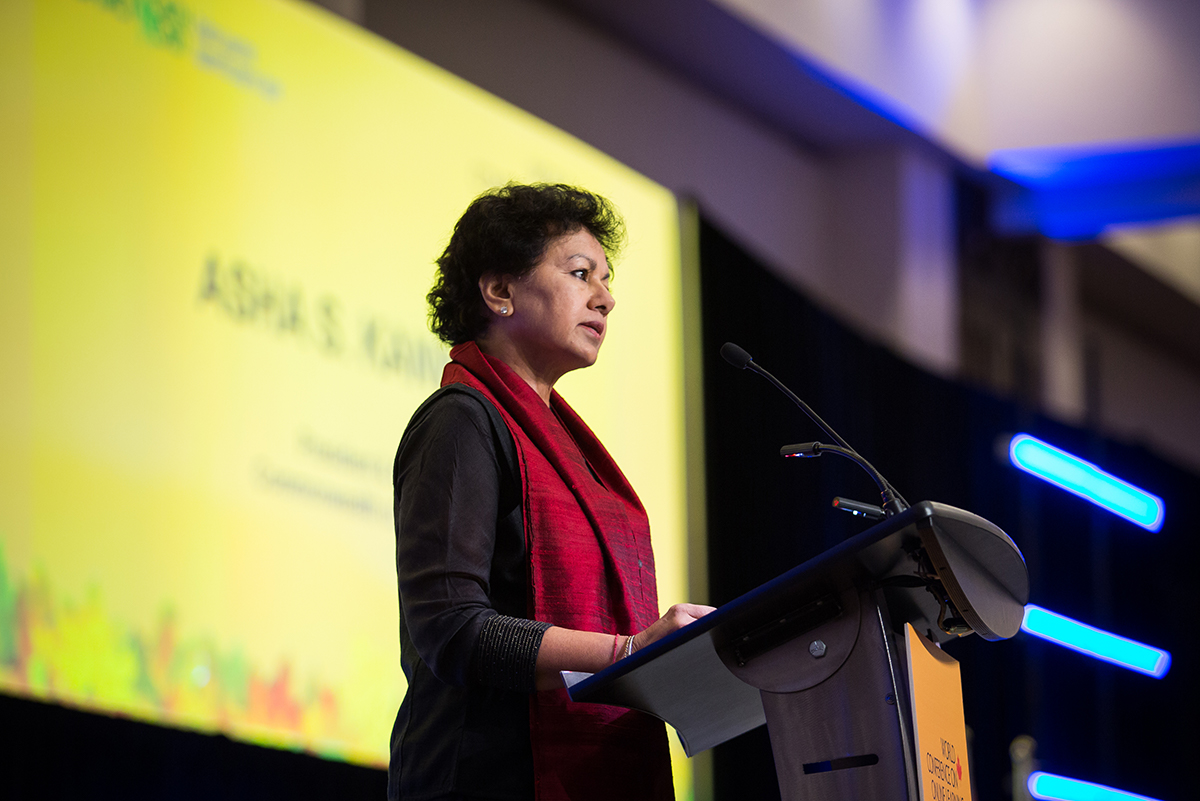 “How can we rethink teaching and learning in a digital age so that no one is left behind? In which ways can increased access, openness and flexibility help us achieve this objective?” These were the questions the Commonwealth of Learning’s President and CEO, Professor Asha KanÂwar, posed to participants at the World Conference on Online Learning: Teaching in The Digital Age – Re-thinking Teaching & Learning, held in Toronto, Canada, from 16 to 19 October 2017.
“How can we rethink teaching and learning in a digital age so that no one is left behind? In which ways can increased access, openness and flexibility help us achieve this objective?” These were the questions the Commonwealth of Learning’s President and CEO, Professor Asha KanÂwar, posed to participants at the World Conference on Online Learning: Teaching in The Digital Age – Re-thinking Teaching & Learning, held in Toronto, Canada, from 16 to 19 October 2017.
“We need innovations to increase access for resource-poor communiÂties, women and people with disabilities,” said Professor Kanwar.
She highlighted three key lessons going forward: “One, that technoloÂgy by itself does not expand access. We can reach the unreached only when technology is placed in an appropriate social, economic and political context and the learner is empowered to use the technology effectively. Two, to harness the potential of openness, institutions will need to embrace open policies and practices. Finally, equity and incluÂsion can only be achieved through a proactive and targeted approach.”
The 27th edition of the International Council for Open and Distance Education’s World Conference was organised and hosted by Contact North | Contact Nord
AFRICA
COL President briefs Minister on COL’s work in Rwanda
Commonwealth of Learning (COL) President and CEO, Professor Asha Kanwar, delivered the inaugural keynote on Getting PractiÂcal About SDG 4 in Teacher Education in Africa, at the “Distance Education and Teachers’ Training in Africa” conference held at the University of Rwanda. Following the conference, which took place from 22 to 25 August 2017, Professor Kanwar met with the Honourable Dr Papias Malimba Musafiri, Minister of EducaÂtion, Rwanda to brief him about COL’s continued interventions in the country.
COL works with partners in Rwanda to strengthen open, distance and flexible learning while recommending innovative solutions that cater to national priorities. During the meeting, Professor Kanwar briefed the Minister about the open and distance learning (ODL) policy developed with COL support at the University of Rwanda, which has been approved by the university’s board. COL has also developed a draft national ODL policy with the Ministry of Education, which is currently pending cabinet approval.
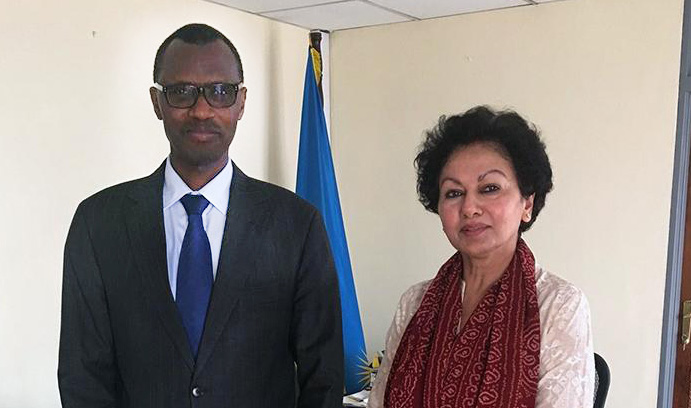
Driving awareness to vulnerable communities
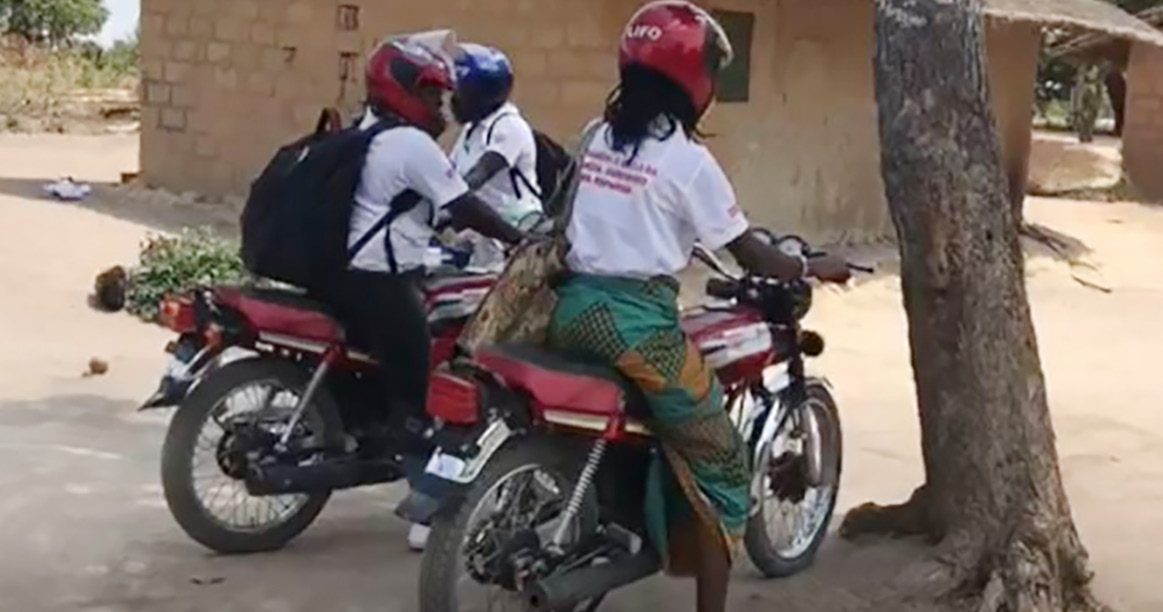 Advocates tackle the deeply rooted issue of child, early and forced marriage
Advocates tackle the deeply rooted issue of child, early and forced marriage
Nacala Porto in Mozambique is one of the most used ports of entry into Malawi, Zambia and Zimbabwe. The Commonwealth of Learning’s GIRLS Inspire project has been working in the area since 2016 due to its high rate of child marriage.
GIRLS Inspire partner ADPP (Ajuda de Desenvolvimento de Povo para Povo) implements the project in seven Nacala Porto commuÂnities. A key challenge for ADPP is distance, as the communities are spread out over an extensive area and project participants cannot all travel to a central location. They needed a solution that would let them bring the project to the girls, parents and communities, but that was also cost-effective.
ADPP has turned to motorbikes to literally drive the project to those who will most benefit. Facilitators travel to the distant comÂmunities via motorbike, where they raise awareness and advocate against child, early and forced marriage, as well as measure the shift in opinions regarding child marriage and girls’ education.
Reaching underserved farmers via mobile learning
A COL-supported mobile and web-based learning platform is growing in popularity in East Africa because it enables farmers to exchange information with extension officers in their local languages. Known in Uganda as m-Omulimisa, the platform has been institutionalised by Makerere University and Uganda Christian University, which are using it in their community outreach programmes.
The platform is designed to integrate into existing agricultural extension systems. It leverages established infrastructure and networks with farmÂers and extension officers to reach more underserved farmers and grow services. Through text messaging, farmers use their mobile phones to send agricultural questions in their local languages and receive feedback from a local extension officer. They are also able to attach pictures so that extension officers can better diagnose problems, such as diseased crops or animals. Partnerships with telecom companies ensure that the farmers’ interactions with the platform are free of charge.
As of August 2017, more than 15,000 farmers from 51 districts have registered with the platform in Uganda, where extension officers have answered more than 11,000 questions. In Tanzania, COL is partnerÂing with Matumaini Mapya on a similar platform to facilitate learning amongst farmers in COL’s Lifelong Learning for Farmers initiative.
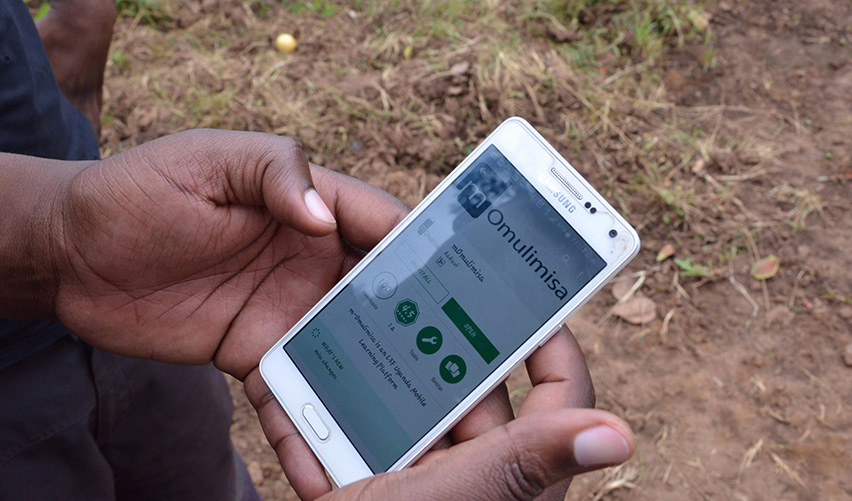
Artisan graduates celebrate at Ghana’s KTU
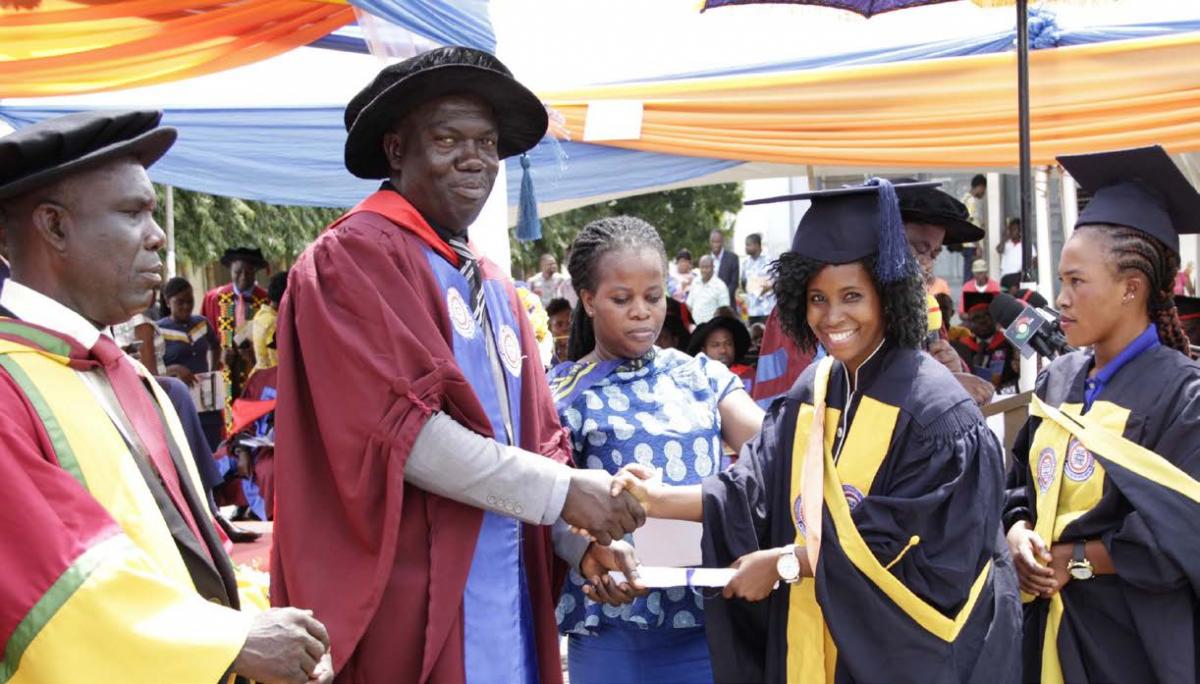
Koforidua Technical University’s (KTU) Institute of Open and Distance Learning held its first graduation ceremony for more than 400 non-formal learners on 29 September 2017, in Koforidua, Ghana. The graduates followed course modules in customer care, ICT basics, busiÂness finance and mobile marketing as well as skill upgrades in their area of expertise. The learners came from a range of trades, including auto mechanics, electricians, barbers, dressmakers, hairdressers, photographers and more.
Of the learners, 69 per cent were women, and thanks to the inclusion of sign language in the training, seven individuals with hearing imÂpairments were able to benefit from the programme. KTU introduced the programme for non-formal learners due to a growing need for improving livelihoods amongst artisans in the community. It was deÂveloped in association with different industry associations for informal workers.
KTU is a member of the INVEST Africa partnership, a programme of the Commonwealth of Learning’s Technical and Vocational Skills Development initiative, which works with more than 90 institutions in seven countries.
The graduation ceremony was a first for informal learners at KTU
COL higher education model pilot launches in Namibia
The Commonwealth of Learning (COL) and the University of NaÂmibia (UNAM) are collaborating on a pilot of COL’s higher educaÂtion model. The pilot was launched at a project design workshop at UNAM’s Centre for Open, Distance and eLearning (CODeL) in early November 2017. The workshop was facilitated by Dr Ephraim Mhlanga of Saide.
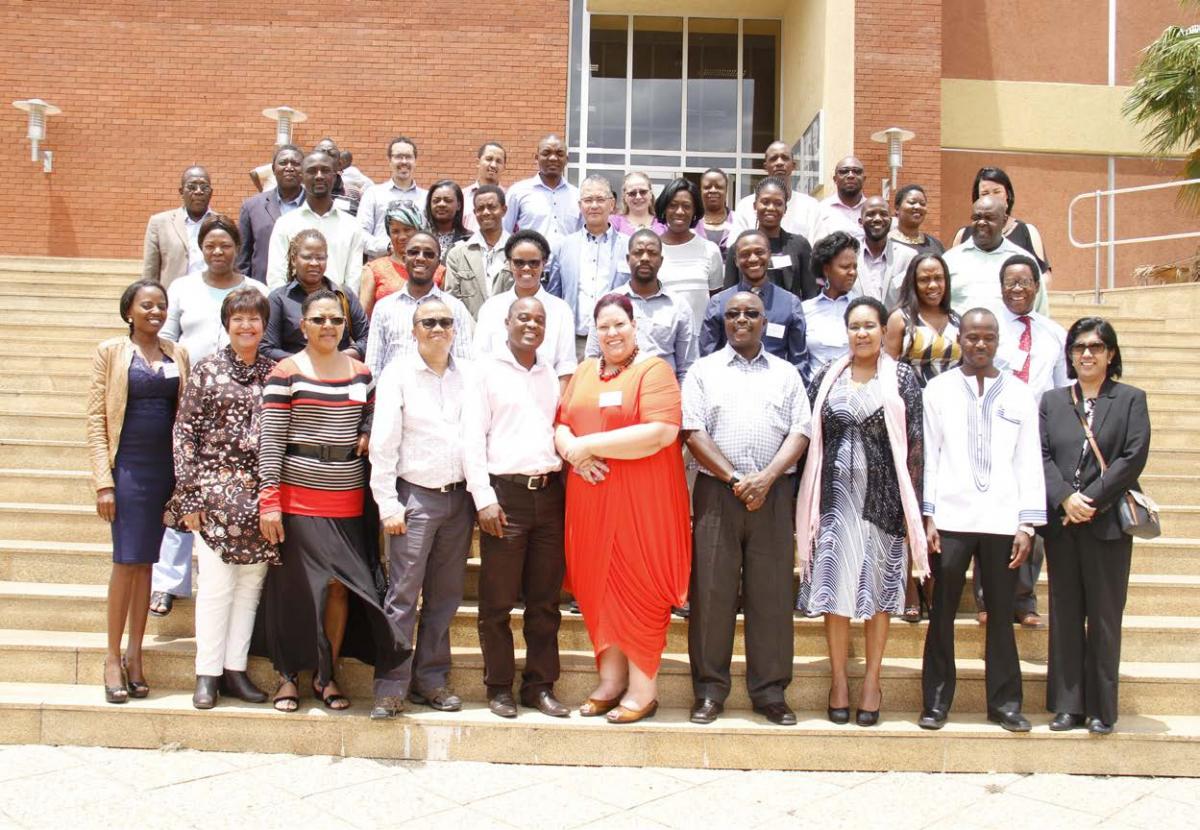
COL Education Specialist: Higher Education, Professor Romeela Mohee (far right) joined workshop participants at UNAM.
TVET stakeholders review progress in Kenya
Fifty TVET (technical and vocational education and training) stakeholders from government agencies and INVEST Kenya partner institutions met for a three-day workshop in Nakuru, Kenya, at the end of August to review the progress made in implementing the flexible TVET model in the country.
Participants updated the annual plan for INVEST Kenya, a programme under COL’s Technical and Vocational Skills Development initiative, and reviewed the draft national policy on open, distance and flexible learning in TVET. The workshop provided a further opportunity for participants to share achieveÂments and best practices. The workshop was facilitated by Mr Bashir Mursal, who was the Director of TVET in the Ministry of Higher Education, Science and Technology until July 2017. The current Acting Director Dr Meshack Opwora also attended.
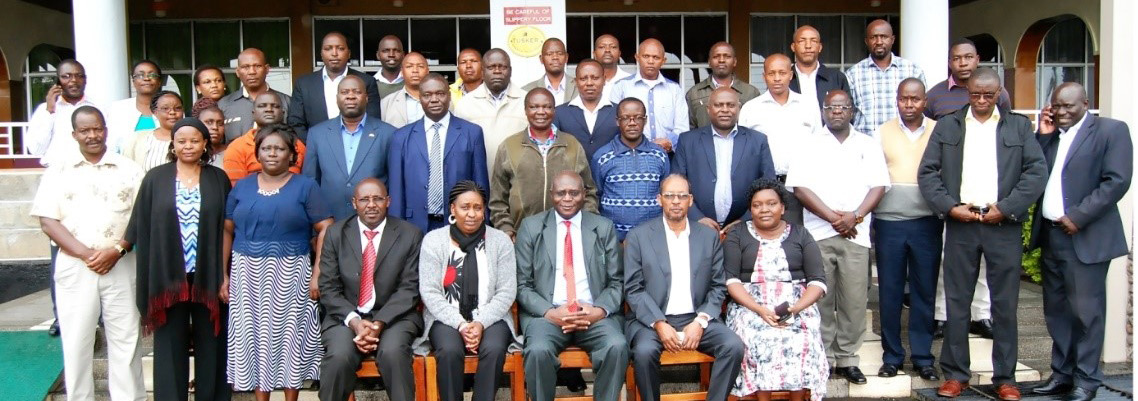
Nigerian polytechnics INVEST in flexible skills training
Through a partnership with the National Board for Technical Education in Nigeria, the Commonwealth of Learning has exÂpanded the INVEST Nigeria partnership to 29 polytechnics. The partners meeting was held in November 2017 in Kaduna, where the national flexible skills development implementation plan and eLearning strategy were discussed. More than 50 rectors and senior managers are now engaged in an online course in flexible skills development.
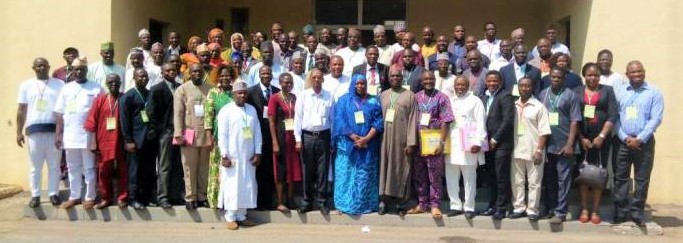
New project to help address staff shortages at East African universities
The Commonwealth of Learning is partnering with the Association of Commonwealth Universities, the Staff and Educational Development Association, UK, and the UniversiÂty of Edinburgh on a project focused on developing degree courses to be shared between East African universities in order to address critical staff shortages in certain departments. The Partnership for Enhanced and Blended Learning project, which is funded by the UK’s Department for International Development, is working with six participating universities: University of Rwanda, Kenyatta University, Strathmore University, State University of Zanzibar, Makerere University and Open University of Tanzania. The project will run to 2021.
National University of Lesotho strengthens distance education
The National University of Lesotho (NUL) is offering new distance edÂucation programmes, thanks to support provided by the CommonÂwealth of Learning (COL) through the Virtual University for Small States of the Commonwealth.
COL and NUL have been working together over the past two years to build capacity at the university for the use of open educational resources (OER) in teaching and learning, as well as to familiarise management with OER. The most recent workshop, which was held from 12 to 15 October, looked at the effective delivery of open and distance learning programmes using traditional, online and blended learning. It was divided into two parts – the first for full-time staff and the second for part-time staff – and attracted 42 participants in total.
NUL’s Institute of Extra-Mural Studies is currently offering a Diploma in Communications Studies, a Diploma in Business Management and a Bachelor of Arts in Business and Entrepreneurship, all via disÂtance education, and there are plans for more programmes to be introduced.
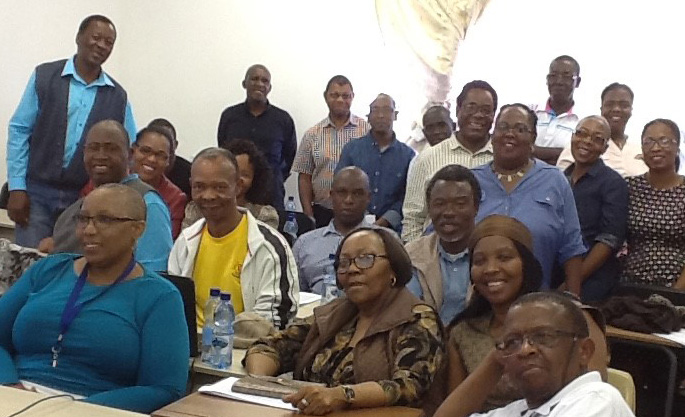
Workshop participants at NUL
Nigeria validates National Policy on OER
The Commonwealth of Learning’s President and CEO, Professor Asha Kanwar, congratulated Nigeria on the adoption of a COL-supported National Policy on Open Educational Resources (OER). The pioneerÂing policy was validated at a Stakeholders’ Validation Symposium at the National Universities Commission in Abuja and will be sent to Nigeria’s National Council on Education for approval.
Professor Kanwar said: “OER have tremendous potential for reducing the costs and improving the quality of education. I congratulate Nigeria for developing a national policy on OER in record time. This will have implications for millions of students and a positive impact on the quality of education in the country.”
The first draft of the policy was prepared on behalf of the CommonÂwealth of Learning by Dr Jane-Frances Agbu of the National Open University of Nigeria. It was then reviewed and revised by Nigeria’s National Steering Committee on OER, before being sent for validation.
COL-supported course aims to boost solar energy technical skills
A new flexible course, supported by the Commonwealth of Learning (COL) as part of a grant from The William and Flora Hewlett Foundation, aims to address the need for technicians with the skills necessary to design and install home solar photoÂvoltaic (PV) systems. Basic Solar PV Technology was developed by a course team at Ramogi Institute of Advanced Technology (RIAT) in Kisumu, Kenya, where it is currently being offered.
The six-unit course, which is targeted at practicing electricians, emphasises the development of both theoretical and practical knowledge and skills in basic solar PV technology, products and systems. It is available as an open educational resource.
RIAT is one of 45 institutional partners in INVEST Kenya.
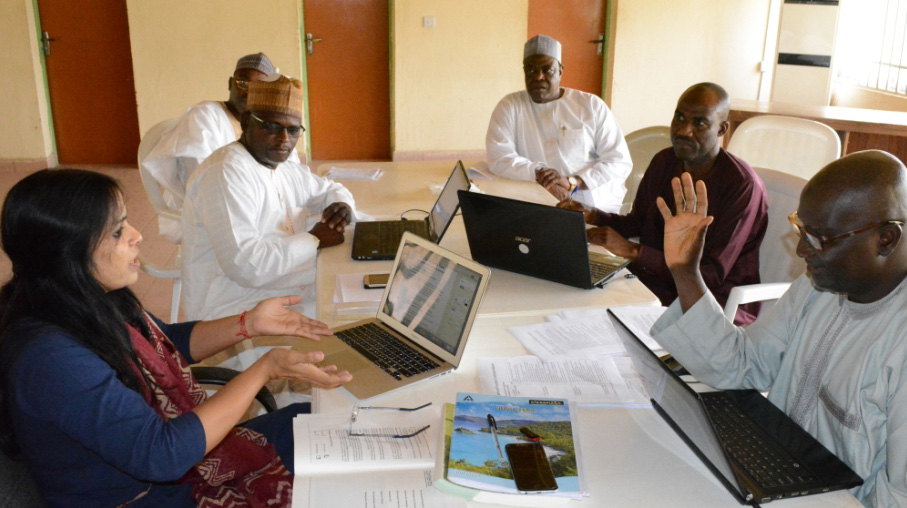
NTI Nigeria to adopt the Green Teacher Programme
The Commonwealth of Learning (COL) is supporting the National Teachers’ Institute (NTI) in Kaduna, Nigeria, to design, develop and implement the Green Teacher Programme, an environmental education programme that addresses the rapidly growing need for professional development in the field. A workshop was held from 11 to 15 September 2017 at NTI to develop modules for the programme; this was a follow-up to a capacity-building workshop held in June 2017.
The developed content will be offered to in-service teachers at NTI through flexible and online learning approaches during the first phase of implementation. Plans are underway to offer the content as part of NTI’s school-based teacher development programme, and also to incrementally integrate it into the institution’s existing programmes, such as the Nigeria Certificate in Education, the PostÂgraduate Diploma in Education and the BA/BSc in Education.
The Green Teacher Programme was launched in 2005 by the CenÂtre for Environment Education, in India, with the support of COL.
Uganda’s UMI developing a TEL policy
The Commonwealth of Learning (COL), in collaboration with the Uganda Management Institute (UMI), organised a two-day visioning workshop on the development of a technology-enabled learning policy for the institute, from 6 to 7 November 2017. The objective was to provide better learning experiences to the students of UMI using digital technologies, learning management systems and open educational resources.
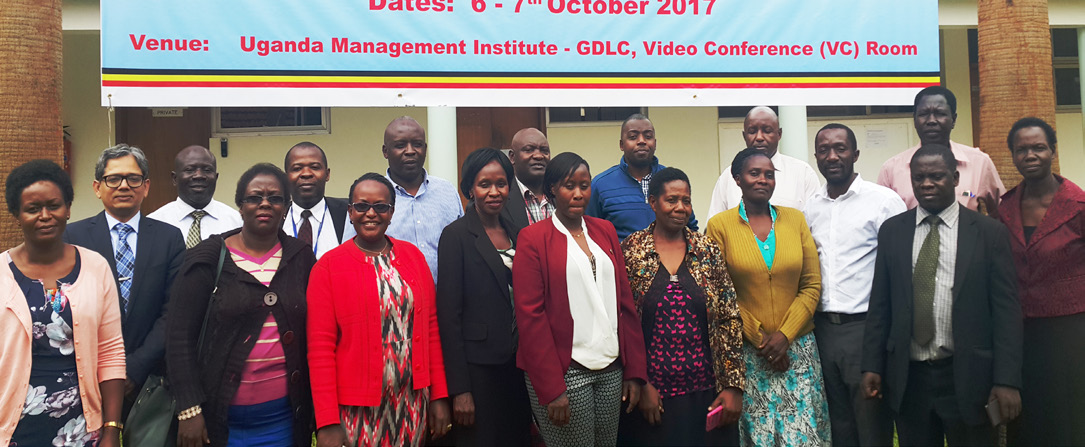
ASIA
COL receives Chongqing Radio & TV University delegates
A delegation from Chongqing Radio & TV University visited COL on 3 November 2017. Led by Professor Guo Qing, President of the university, the two organisations presented on their respective activities and discussed future collaboration. Other representatives included Mr Huang Xiang, Ms Li Ling, Ms Liu Baimei, Mr Lu Yuesheng and Mr Wu Nanzhong.
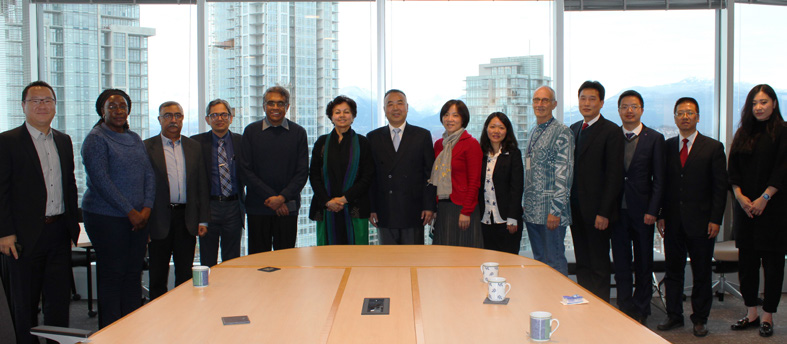
Beijing Normal University delegation visits COL
The Commonwealth of Learning (COL) welcomed a delegation from Beijing Normal University at its headquarters on 2 August 2017. Led by Vice President Professor Chen Li, the group also included Professor Zhang Weiyuan, Professor Feng Xiaoying and Ms Li Shuang. They discussed the potential for a stronger relationÂship between the two organisations.
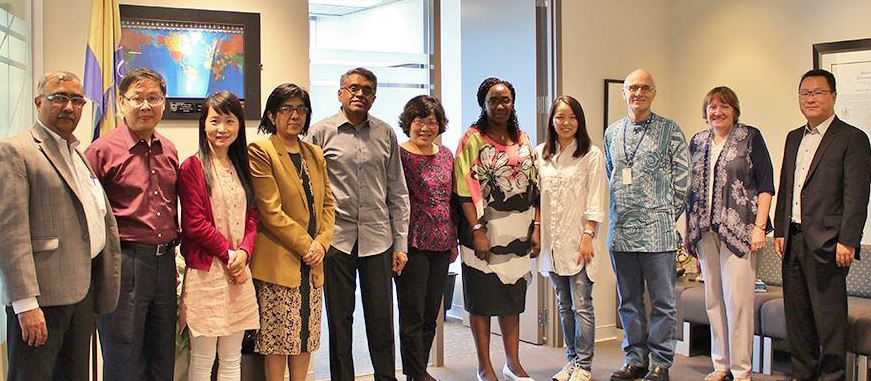
Singapore shares education successes
The Commonwealth of Learning (COL) and Singapore’s Ministry of Foreign Affairs hosted 18 participants from 10 Commonwealth countries at a workshop designed to support the capacity building of teacher educators and education practitioners in using information and communication technologies (ICTs) for improving teaching and learning. The workshop, which is part of an annual initiative between the two organisations under the Singapore Cooperation Programme, was held in Singapore from 21 to 25 August 2017.
COL Senior Adviser: Open Schooling, Dr Johan Hendrikz, said: “The workshop was built around the 20-year journey that Singapore has taken in building its education system into one of the best in the world. It involved an inspiring blend of theory, reflections on lessons learned and school visits.”
Workshop participants included teacher educators, teacher educaÂtion managers and ministry representatives from Belize, Mauritius, Mozambique, Nigeria, Seychelles, Sierra Leone, Tanzania, Trinidad and Tobago, Vanuatu and Zambia. The lecturers included research staff from the National Institute of Education (NIE) International, the consultancy and training arm of the NIE Singapore.
“The participants had an opportunity to reflect on how they might contribute more effectively to programmes using ICT to improve quality in teaching and teacher education in their respective counÂtries,” said Dr Betty Ogange, COL Adviser: Teacher Education.
MOOC4D featured at World Conference on eLearning
Dr Venkataraman Balaji, Commonwealth of Learning (COL) DirecÂtor: Technology and Knowledge Management, presented on COL’s Massive Open Online Courses for Development (MOOC4D) at the Pre-Conference Symposium of the 2017 E-Learn – World Conference on E-Learning, held on 17 October 2017 in Vancouver, Canada.
MOOC4D are part of COL’s efforts to promote open and distance learning as a path to sustainable development. In partnership with the Indian Institute of Technology Kanpur (IITK), COL developed MOOCs that combine COL’s expertise in agriculture and sustainable development and IITK’s expertise in computer engineering.
CEMCA supports need-based programmes
More than 1,000 learners have been engaged in three need-based programmes offered by Netaji Subhas Open University (NSOU), with support from the Commonwealth Educational Media Centre for Asia. The programmes, which were developed during the past year, are being offered through a blended learning approach and include a diploma for pre-primary teachÂers, an advanced diploma in tailoring and dress design, and a certificate in inclusive education for teachers. The learning materials are also available as open educational resources (OER) through three institutional OER reposiÂtories: Bangladesh Open University, Netaji Subhas Open University and Odisha State Open University.
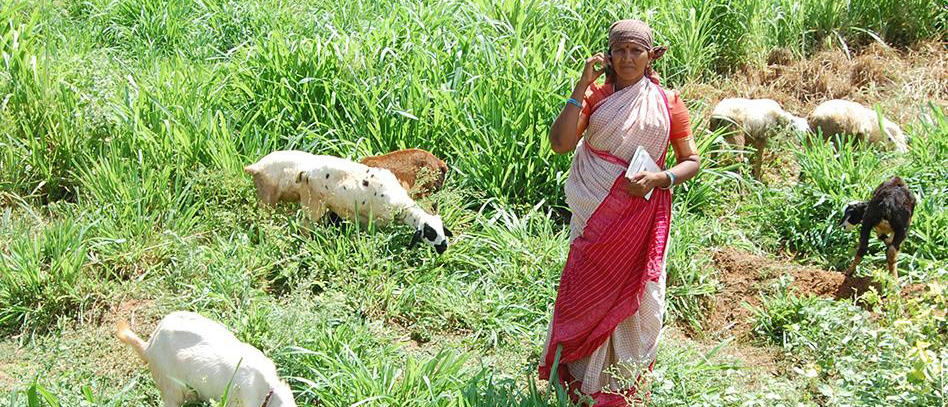 Agricultural MOOCs increasingly accessed via mobile devices
Agricultural MOOCs increasingly accessed via mobile devices
The Commonwealth of Learning, in collaboration with the Indian InstiÂtute of Technology Kanpur, launched three massive open online coursÂes (MOOCs) on agricultural topics in September 2017. The courses had a combined registration of more than 7,000 learners, 42 per cent of whom used a smartphone as the primary device to access the course. In one of the courses, nearly half the learners used a mobile device. This marks a significant increase in just one year; in 2016, approximately 25 per cent of learners used a mobile device to access agricultural MOOCs offered through the same platform.
The three courses were offered on the agMOOC online platform, which provides free access to high-quality courses online. Two courses are offered in English and one in Hindi. This year’s courses attracted learners from across the Commonwealth, with India, Nigeria and Kenya being the most represented nations.
CARIBBEAN & AMERICAS
COL and Belize Ministry of Education discuss VUSSC
Mr John Lesperance, COL Education Specialist: Virtual University for Small States of the ComÂmonwealth (VUSSC), met with senior officials at the Belize Ministry of Education to discuss VUSSC and its support for capacity building in open educational resources, the Transnational Qualifications Framework and course contents.
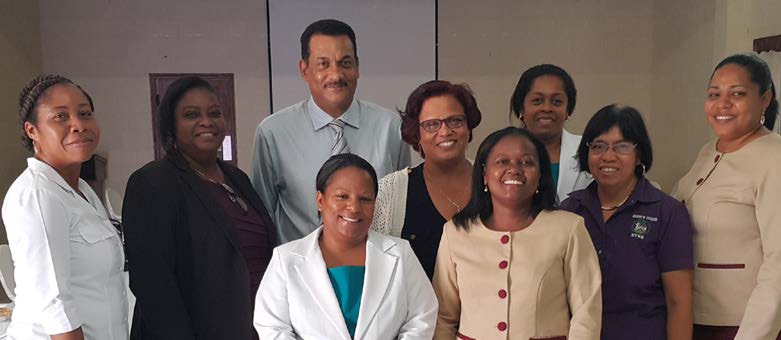
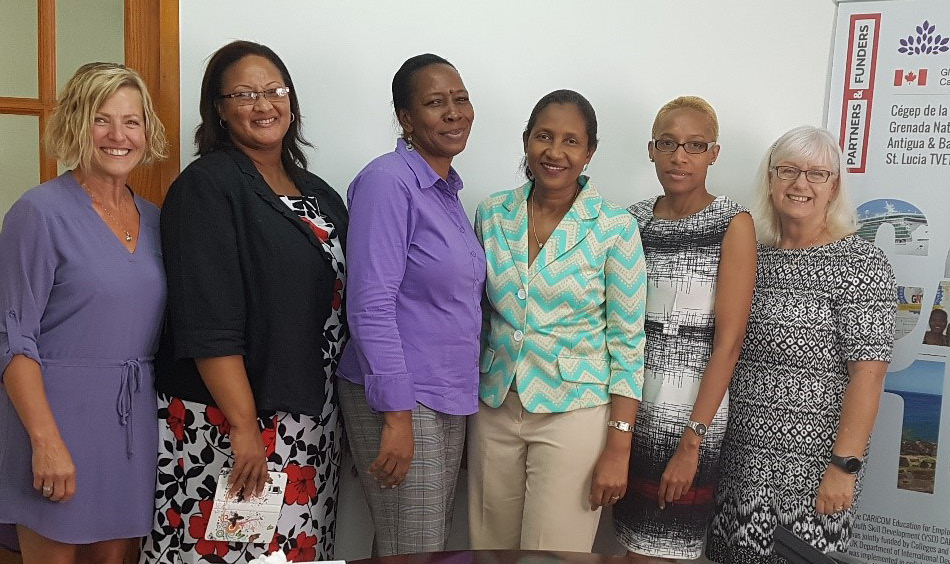
CVQ Assessor Training ready for roll out
The Barbados Technical and Vocational Education and Training Council, the National Training Authority (NTA) Trinidad and Tobago, and the Grenada NTA recently developed and piloted an online Caribbean Vocational Qualification (CVQ) Assessor Training programme. The pilot programme was developed as an open educational resource and included 43 candidates from the three countries.
The programme has three objectives: to increase the number of trained and certified CVQ Assessors; to increase the number of CaribÂbean citizens with recognised qualifications; and to improve quality and strengthen the CVQ system.
The pilot programme has now been evaluated and the materials revised. The team is reporting to members of the Caribbean AssociaÂtion of National Training Agencies on delivery options to scale it up.
COL Education Specialist: TVSD, Dr Alison Mead Richardson (far right) with the programme team
COL highlights TVET partnerships in Saint Lucia
Commonwealth of Learning (COL) Education Specialist: TVSD, Dr Alison Mead Richardson, recently met with the Honourable Dr Gale Rigobert, Saint Lucia’s Minister of Education, Innovation, Gender Relations and Sustainable Development. She updated the minisÂter on the progress of the technical and vocational education and training partnerships currently underway with Saint Lucia instituÂtions, including COL’s support of the Ministry in drafting an ICT in Education policy, the development of OER skills training courses and the support of Sir Arthur Lewis Community College to implement a flexible and blended learning model.
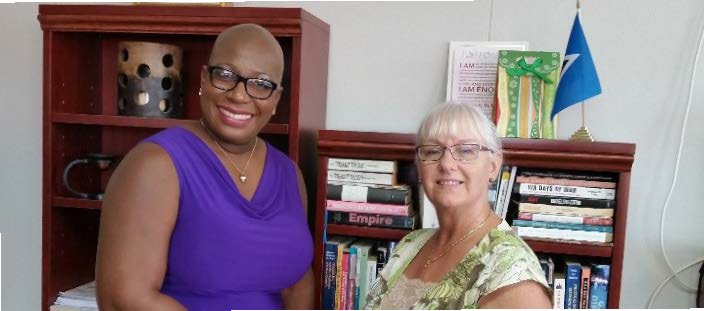
EUROPE
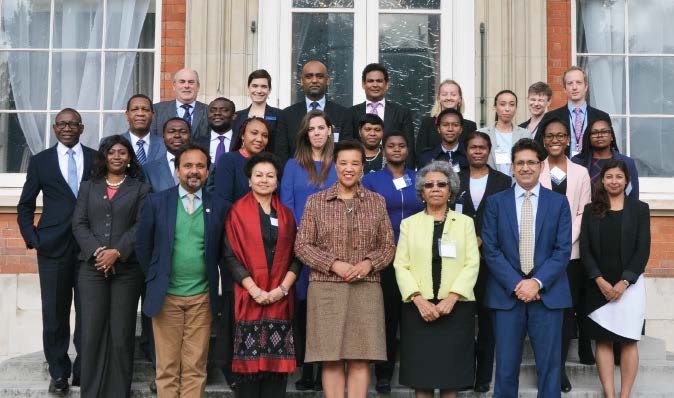
COL President meets with new diplomats in London
The Commonwealth of Learning’s (COL) President and CEO, Professor Asha Kanwar, briefed new London-based diplomats at the 34th Diplomats Induction Programme, held in London, UK, 2-4 October 20


